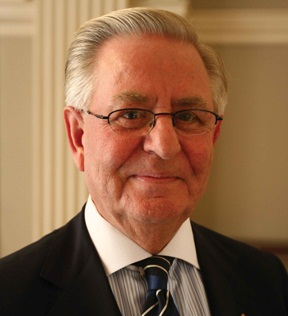
By Rasheed Hammouda
No event more perfectly captures the changing relationship between the Gulf powers and their western counterparts than the ongoing investigation into the 2008 Barclays bailout by Qatar. It was reported earlier this year that the nearly year-long investigation by the UK’s Financial Services Authority and Serious Fraud Office has turned to investigating claims that Barclays itself helped finance Qatar’s leading buyout of more than £11bn in shares, which saved Barclays from seeking government funds.
Evident here is a clear turn away from past relations; Qatar is squarely among the new economic powers that will only continue to rise. However, in the coming years, the asymmetry of such power relationships will continue to dissipate. Both the colonial and postcolonial eras have been marked by a highly exploitative relationship, with western powers benefiting greatly at the expense of foreign labour and resources. To be sure this time is, and has been, coming to an end, but it will not likely be replaced by a new era of Eastern imperialism.
Numerous gulf countries have long been increasing their foreign investments in an effort to diversify their massive budgetary surpluses. Leading the pack in perhaps both visibility and shrewdness of investing is Qatar, their sovereign wealth fund established in 2005 to manage Qatar’s booming surplus of petroleum profits.
In continuing the reversal of the typical East-West investment relationship, Qatar has become one of the world’s largest investors in European property. Reuters estimates that between late 2011 and 2012 Qatar invested approximately $4.3bn on property, second only to the massive American investment group, Blackstone. Perhaps by the end of the decade it will be the battered EU whose budgetary focus will be devising novel ways to boost their FDI numbers.
Qatar’s most recent European move was a £400m two-part deal to acquire the posh Park Lane InterContinental Hotel. The bidding process involving 5 other competitors reportedly resulted in an astounding 62% premium over the property’s list value. An InterContinental Hotel Group representative quoted in the Guardian reacted with a nearly comical bluntness: “We are pretty pleased.”
Understandably so, considering the UK economy continues to sputter in the midst of austerity measures that have failed to kick-start the damaged domestic economy after the 2007-2008 crisis. On the other hand, the recession has been relatively kind to the Middle East, and this has catapulted Qatar into the increasingly small circle of investment powers that have both the liquidity to enable aggressive investment moves as well as the political flexibility to do so.
The situation is more complex than this though; Qatar should not be underestimated as merely an eager young investor with cash to burn and the need to do so. Indeed, Qatar’s long-term investment strategy is well known: the young oil rich country knows it cannot build a stable economy on petroleum alone and has been proactive in its wealth diversification. Qatar’s sovereign wealth fund has its hand in just about every industry. As stated though, this should not simply be seen as a clear-cut shift in neocolonial power. The situation is more tenuous, the nuances of which have yet to fully develop, in short, a far cry from the straightforward imperial exploitation of the past.
Another look at Barclays and the Park Lane InterContinental proves indicative of an economic relationship deeply interdependent. The practice of wealth diversification has led Qatari investors to being some of the largest landowners in major western cities like London and major stakeholders in important western financial institutions. However, what links these two very different investments is that their security rests almost entirely on the west’s ability to recover from an economic crisis that has all but collapsed at least two European nations, and seems destined to throttle more.
The potential comedy of Barclays effectively financing their own bailout should not obscure how revealing this is of the state of things: Barclays (and the west) need the nouveau riche of the East. At the same time, while they may forgo some control over future relationships, they are, as the representative of InterContinental indicated, quite pleased to do so: as foreign ownership in Europe increases, so will the incentive for foreign countries to insure Europe’s larger future prosperity.
In short, the past decade has been especially good to countries like Qatar. Not only were they relatively insulated from the worst of the financial crisis, but the continued recession elsewhere has made Qatar one of the few players still at the high-rollers table. Be that as it may, Qatar and its oil-rich compatriots are in it for the long haul. As a result, the long-term prosperity of Qatar is slowly becoming more and more enmeshed in the recovery of the economies that make up to its diverse investment pool. It’s a deeply symbiotic relationship, albeit one in which Qatar stands to come out ahead.
Bio
Rasheed Hammouda is an Egyptian-American researcher based in London with a focus on MENA economics and contemporary philosophy



